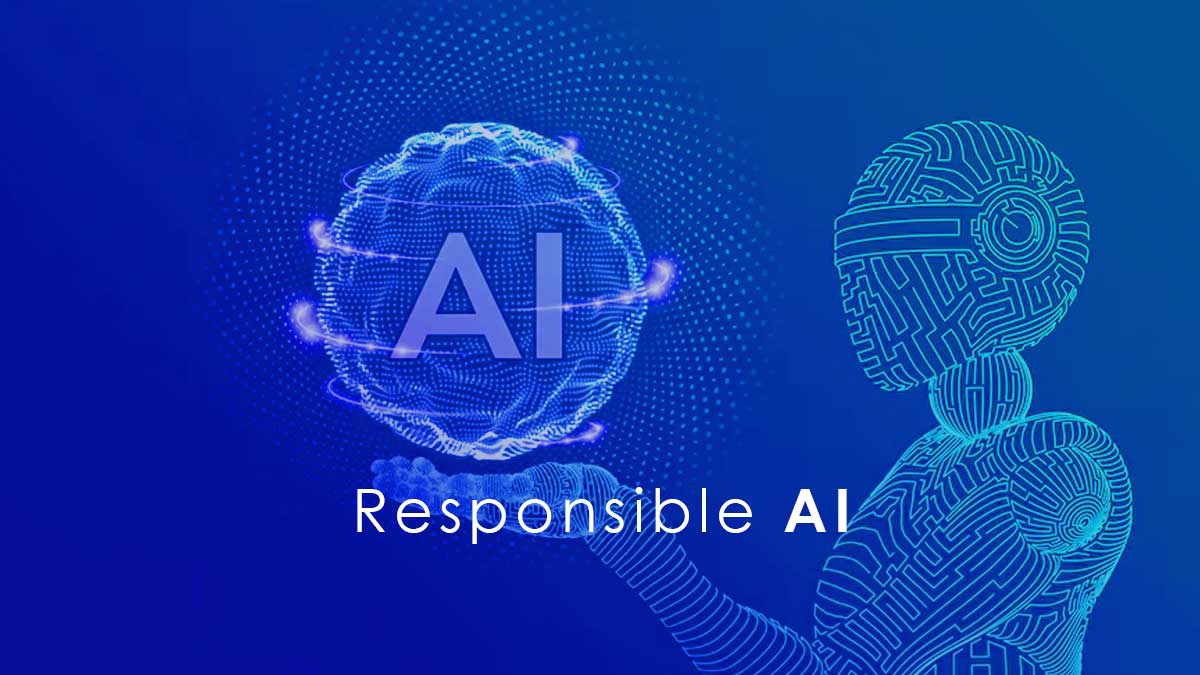- Home
- Billionaires
- Investing Newsletters
- 193CC 1000
- Article Layout 2
- Article Layout 3
- Article Layout 4
- Article Layout 5
- Article Layout 6
- Article Layout 7
- Article Layout 8
- Article Layout 9
- Article Layout 10
- Article Layout 11
- Article Layout 12
- Article Layout 13
- Article Layout 14
- Article Sidebar
- Post Format
- pages
- Archive Layouts
- Post Gallery
- Post Video Background
- Post Review
- Sponsored Post
- Leadership
- Business
- Money
- Small Business
- Innovation
- Shop
Recent Posts
Responsible AI: Navigating Privacy Challenges

The concept of ‘responsible’ AI is a hot topic, but what does it truly entail? Essentially, it means being mindful of the outcomes of our actions and ensuring they don’t harm or jeopardize anyone. Yet, there’s much unknown about AI, particularly its long-term impacts. The development of machines capable of thinking, creating, and deciding for us could profoundly affect human jobs and lives in unpredictable ways.
One significant concern is the potential for privacy violations, a fundamental human right. AI systems can now identify us by our faces in public and routinely process highly sensitive information like health and financial data. So, what does responsible AI look like concerning privacy, and what challenges do businesses and governments face? Let’s delve deeper.
Consent and Privacy : AI often relies on data many consider private, such as location, finances, or shopping habits, to offer services that simplify life. This could be route planning, product suggestions, or protection against financial fraud. In theory, this relies on consent—we allow our information to be used, so using it isn’t a privacy breach. Ensuring clear, informed consent is a critical way businesses can use AI responsibly. However, this doesn’t always happen, as seen in the Cambridge Analytica scandal, where personal data from millions of Facebook users was collected without consent for political modeling.
Data Security : Data must be kept safe and secure to uphold privacy. Collecting consent means little if we fail to protect the data. Data breaches are becoming more significant and damaging. For example, in late 2023, nearly 14 million people’s sensitive healthcare records were compromised by an attack on PJ&A, a transcription service provider. This highlights the importance of robust security measures against sophisticated attacks.
Personalization vs. Privacy : AI promises more personalized products and services, tailored to individual needs. However, this comes at the cost of privacy. Companies collecting data for personalization must understand where to draw the line. On-device (edge computing) systems can help process data without leaving it in the user’s possession, but designing them can be challenging. Companies must also be wary of being too personal, as customers can feel uncomfortable if AI knows too much about them.
Privacy By Design : Balancing consent, security, and personalization is crucial for building responsible AI that respects privacy. Understanding the level of personalization that is genuinely helpful versus intrusive is key. Legislation, like the EU AI Act, will play a role, but ultimately, developers and users will define what it means to be responsible in the AI world.
In conclusion, responsible AI involves navigating complex ethical and practical considerations. It requires a nuanced understanding of our processes, systems, and user rights. Getting it wrong risks eroding trust in AI-enabled products and services. As AI continues to evolve, it will be up to developers, sellers, and users to determine what constitutes responsible AI use in a rapidly changing landscape.”
- AI accountability
- AI and privacy
- AI consequences
- AI development
- AI ethics
- AI impact
- AI personalization
- AI privacy considerations
- AI privacy debate
- AI privacy guidelines
- AI privacy measures
- AI privacy risks
- AI privacy solutions
- AI privacy standards
- AI privacy strategies
- AI regulation
- AI transparency
- consent
- data privacy
- data privacy practices
- data privacy rights
- data protection
- data security
- ethical AI
- ethical AI development
- ethical data use
- machine learning
- privacy
- privacy advocacy
- privacy best practices
- privacy by design
- privacy challenges
- privacy compliance
- privacy concerns
- privacy frameworks
- privacy implications
- privacy laws
- privacy policies
- privacy principles
- privacy protection
- privacy-aware AI
- privacy-focused AI
- responsible AI
- responsible AI use
- responsible data use
Recent Posts
Categories
- 193cc Digital Assets2
- 5G1
- Aerospace & Defense46
- AI37
- Arts3
- Banking & Insurance11
- Big Data3
- Billionaires477
- Boats & Planes1
- Business328
- Careers13
- Cars & Bikes76
- CEO Network1
- CFO Network17
- CHRO Network1
- CIO Network1
- Cloud10
- CMO Network18
- Commercial Real Estate7
- Consultant1
- Consumer Tech180
- CxO1
- Cybersecurity68
- Dining1
- Diversity, Equity & Inclusion4
- Education7
- Energy8
- Enterprise Tech29
- Events11
- Fintech1
- Food & Drink2
- Franchises1
- Freelance1
- Future Of Work2
- Games141
- GIG1
- Healthcare78
- Hollywood & Entertainment186
- Houses1
- Innovation42
- Investing2
- Investing Newsletters4
- Leadership65
- Lifestyle11
- Manufacturing1
- Markets20
- Media193
- Mobile phone1
- Money13
- Personal Finance2
- Policy567
- Real Estate1
- Research6
- Retail1
- Retirement1
- Small Business1
- SportsMoney33
- Style & Beauty1
- Success Income1
- Taxes2
- Travel10
- Uncategorized8
- Vices1
- Watches & Jewelry2
- world's billionaires446
Related Articles
Jensen Huang Sees Physical AI as the Next Big Leap
Nvidia CEO Jensen Huang believes that Physical AI will be the next...
By 193cc Agency CouncilAugust 10, 2024Could AI Be the Next iPhone Moment?
The term “iPhone moment” describes a technological breakthrough that pushes innovation into...
By 193cc Agency CouncilJuly 8, 2024AI Surge Boosts Demand for Memory and Storage Innovations
The rise of artificial intelligence (AI) is significantly boosting the need for...
By 193cc Agency CouncilJuly 5, 2024Generative AI Set to Transform Finance Jobs
Generative AI is poised to revolutionize the financial services industry by automating...
By 193cc Agency CouncilJune 10, 2024















Leave a comment